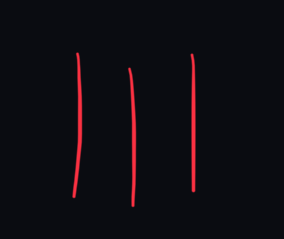How does our workflow as classical composers start to be affected by companies? Since I can’t do a good video about this right now without risking some stupid statements I prefered to just write my hypothesis, that is actually a big conclusion after years in this stuff:
It looks that software companies have more influence in our compositional proccess nowadays as we may believe. At least this is how I perceive it. They are not simply offering solutions, but creating problems as well. This happens due to the very nature of marketing, perhaps: it is not enough to produce the product; they have to “teach” us about how to use it. But when teaching, they start to not prioritize aristical goals; they are concerned about their goals. Most of the time the goals are not so ambitious, and need to merely satisfy the category of „good production value“.
This means: the compositional proccess will be very likely be simplified in order to fit in their products, and show the best that the product can do. The problem is: some things in the compositional proccess are got already tested and proven to work over and over again . Their efficiency got tested by some people who know more about musical composition than the developers of softwares for composers: these people are some humble guys like Ravel, Richard Strauss, John Williams, Rachmaninoff…
What I feel that happens nowadays is in part an amazing and good technological revolution in the field of musical composition that is doubtlessly good for some musical directions but misleading for others, principally there where artistic ambition from a more classical point of view takes place.
Exactly in this regard I feel to suffer a scam. I don’t mean that this is a planned and intentional scam, I just mean that this simply happens due to the rhetoric limitations of marketing: marketing is not teaching!
There is an unnecessary amount of distraction from legitim and traditional workflow because it is easier for companies to create their own vision of a compositional workflow than to truly integrate their technology to our historic tradition. A consequence of this is me over and over again trying to do things with the computer that I could do better with pen and paper; principally when it comes to sketching. And in the field of sketching i believe this “scam” hits worse: because it is very easy to show in a 10 minutes video some amazing workflow that works for the company and forget what this workflow truly means long term for a composer facing the challenges of developing his craft beyond the abc.
What i see is that the way that companies present their products affects the teaching and learning of the craft oversimplifying it. I mean here a simplificaiton that costs a high price for the most talented composers later. And unlike these companies I am more concerned about the high-talented composer we might “lose” than the lazy curious rich amateurs we might convert as new custumers.
Another causal component of this „scam effect“ is the very incomplete quality of very attractive products and how they force you into working towards some directions that were not actually your first intention and that are supposed to hide the weak points of the software and their flaws.
There is an important personal component to it: I guess, I am more distracted by technology than others of my kind. But this happens due to the fact that I don’t see a line dividing technology from art; the pursue of art can’t be distinguished from the experimentations with artistic technology. So I get caught in a vicious circle of speculations regarding compositional workflow . In this sense I would love to see your thoughts in this matter, before I give more details and examples about the issue for those who might not understand it at the first glance.
(photo and text: Fróes)

